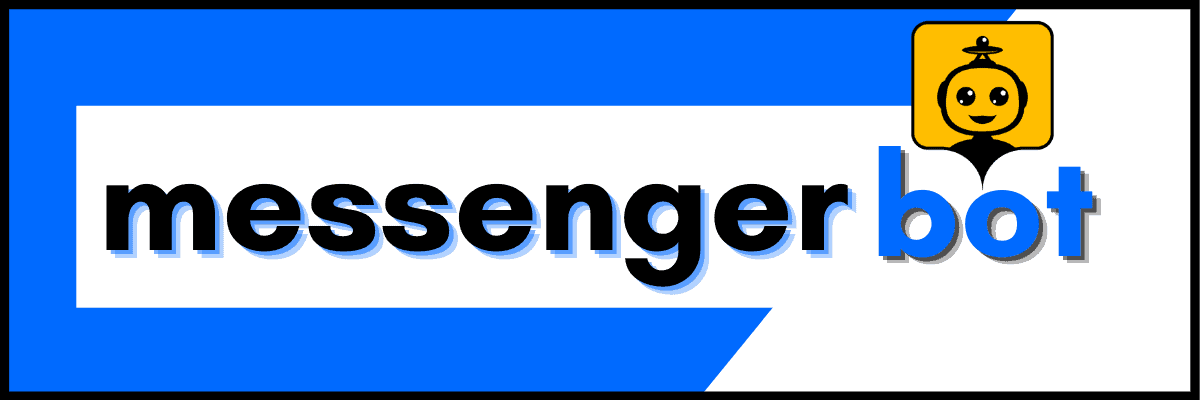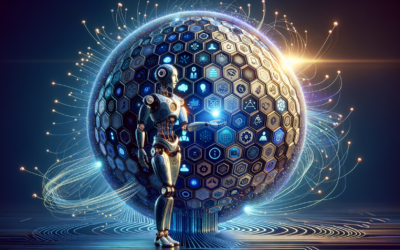In the age of instant gratification, customer service has evolved to meet the demands of modern consumers. One innovative solution gaining rapid traction is the integration of chatbots into customer service operations. These AI-powered virtual assistants are revolutionizing how businesses interact with their customers, offering round-the-clock availability, personalized support, and lightning-fast response times. From answering frequently asked questions to handling complex inquiries, chatbots are reshaping the customer experience landscape. As we delve into this dynamic realm, we’ll explore the profound impact of chatbots on customer service, their benefits for both businesses and consumers, and the strategies for leveraging this technology to deliver unparalleled support and engagement.
I. How are chatbots used in customer service?
A. Chatbots and customer service number
As an AI-powered customer service solution, we at Messenger Bot recognize the pivotal role chatbots play in revolutionizing customer interactions. Chatbots are at the forefront of transforming how businesses engage with their customers, offering round-the-clock availability, personalized assistance, and seamless support across multiple channels.
By leveraging natural language processing and machine learning capabilities, our chatbots serve as virtual assistants, handling routine inquiries and tasks autonomously. This allows human agents to focus on more complex issues, ensuring efficient resolution times and enhanced customer satisfaction.
One of the key advantages of our chatbot technology is its ability to provide 24/7 support, addressing customer needs outside regular business hours. This continuous availability ensures that no inquiry goes unanswered, fostering a sense of reliability and responsiveness for your brand.
Moreover, our chatbots empower customers with self-service options, such as knowledge bases, FAQs, and guided troubleshooting. This not only reduces the need for direct agent interaction but also promotes customer autonomy and convenience, allowing them to find solutions at their own pace.
B. Customer service chatbot examples
To illustrate the transformative impact of chatbots in customer service, let’s explore some real-world examples. Leading companies like Apple, Amazon, and Airbnb have successfully integrated chatbots into their customer service strategies, enhancing their overall customer experience.
For instance, Brain Pod AI, a pioneering AI company, offers a multilingual chatbot solution that enables businesses to provide support in multiple languages, breaking down language barriers and catering to a global customer base.
Another notable example is Zendesk, a customer service software provider, which offers AI-powered chatbots that can be integrated into various channels, ensuring consistent and accessible customer support across platforms.
By leveraging these cutting-edge chatbot solutions, businesses can significantly enhance operational efficiency, reduce costs associated with staffing and training, and deliver personalized, seamless customer experiences, ultimately leading to increased satisfaction and loyalty.

II. Can chatbots replace customer service?
A. Benefits of chatbots for customers
While chatbots cannot fully replace human customer service representatives, they offer several benefits that enhance the overall customer experience. One key advantage is their 24/7 availability, providing instant assistance without the need to wait for a human agent. This around-the-clock accessibility is especially valuable for customers in different time zones or those seeking support outside of traditional business hours.
Chatbots also excel at handling routine, straightforward inquiries efficiently, such as checking order statuses, retrieving account information, or providing basic product details. This frees up human agents to focus on more complex issues that require empathy, problem-solving skills, and personalized attention. By automating these repetitive tasks, chatbots powered by Brain Pod AI can significantly reduce wait times and improve response rates, leading to higher customer satisfaction.
Furthermore, chatbots offer a consistent, standardized experience, ensuring that customers receive accurate and up-to-date information without the potential for human error or inconsistencies. They can also seamlessly integrate with various channels, such as websites, mobile apps, and social media platforms, providing a cohesive and convenient experience for customers across multiple touchpoints.
B. AI chatbots for customer service
As artificial intelligence (AI) and natural language processing (NLP) technologies continue to advance, AI-powered chatbots are becoming increasingly sophisticated in their ability to understand and respond to customer inquiries. These AI chatbots for customer service can leverage machine learning algorithms to analyze customer inputs, detect intent, and provide relevant, personalized responses.
One notable example is Brain Pod AI, a cutting-edge generative AI platform that offers a range of conversational AI solutions, including multilingual chatbots and virtual assistants. Their AI chat assistant can engage in human-like conversations, understand context and nuance, and provide accurate and helpful responses to customer queries.
Additionally, AI chatbots can integrate with customer relationship management (CRM) systems and knowledge bases, allowing them to access and retrieve customer-specific information, order histories, and product details. This enhances their ability to provide personalized assistance and streamlines the overall customer service experience.
However, it’s important to note that while AI chatbots offer significant advantages, they should not be viewed as a complete replacement for human agents. A well-designed customer service strategy often combines the strengths of AI chatbots and human representatives, leveraging automation for routine tasks and human expertise for more complex, nuanced issues.
III. What is an example of a customer service chat bot?
A. Chatbots examples
Customer service chatbots have become increasingly popular in recent years, providing businesses with an efficient and cost-effective way to handle customer inquiries and support requests. These AI-powered virtual assistants can engage in natural language conversations, offering 24/7 availability and quick response times. Here are some prominent examples of customer service chatbots:
- Domino’s Pizza AI assistant allows customers to order food, customize toppings, and track deliveries through voice or text conversations.
- Sephora’s chatbot helps shoppers find products, provides makeup tips, and assists with purchases by analyzing uploaded selfies.
- Amtrak’s chatbot assists travelers with booking tickets, checking schedules, finding station information, and handling other travel-related inquiries.
- Duolingo’s chatbot, built using advanced natural language processing, helps language learners practice conversations on various topics.
- H&M’s chatbot offers personalized fashion advice, style recommendations based on preferences, and assists with online shopping.
- Mastercard’s AI assistant handles banking queries, provides account information, enables bill payments, and offers financial management tips.
- Whole Foods’ chatbot helps customers find recipes, create shopping lists, locate stores, and get assistance with grocery orders.
These chatbots leverage AI and natural language processing to provide personalized, conversational customer service across various industries. By automating routine tasks and queries, they free up human agents to focus on more complex issues, ultimately improving overall customer satisfaction and operational efficiency.
B. Best customer service chatbots
When it comes to identifying the best customer service chatbots, several factors come into play, such as natural language understanding, integration capabilities, and customization options. Some of the top-rated chatbot platforms for customer service include:
- Messenger Bot: Our advanced AI-powered platform enables businesses to create highly intelligent and conversational chatbots that can handle complex customer queries, automate workflows, and integrate seamlessly with various messaging channels.
- Brain Pod AI: Brain Pod AI offers a comprehensive suite of AI tools, including a powerful chatbot builder that enables businesses to create multilingual virtual assistants for customer support, lead generation, and more.
- Zendesk Answer Bot: Zendesk’s AI-powered chatbot leverages machine learning to provide accurate and contextual responses to customer inquiries, reducing the need for human intervention.
- Drift: This conversational marketing platform empowers businesses to engage website visitors with personalized chatbots, capturing leads and providing real-time support.
- Amazon Lex: Amazon’s conversational AI service allows businesses to build highly engaging chatbots with advanced natural language processing capabilities.
The best customer service chatbot for your business will depend on your specific requirements, such as the desired level of customization, integration needs, and the complexity of customer queries you aim to handle. It’s essential to evaluate each platform’s features and capabilities to ensure it aligns with your organization’s goals and customer service strategy.
IV. Why chatbots matter to the contact center?
As a cutting-edge technology, chatbots are revolutionizing the way Messenger Bot approaches customer service and engagement. Their integration into the contact center has become a strategic imperative, offering numerous benefits that streamline operations, enhance customer experiences, and drive cost efficiencies.
A. Chatbots and customer service
Chatbots are transforming the customer service landscape by acting as virtual assistants, available 24/7 to address inquiries and provide real-time support. Their ability to handle basic queries frees up human agents to focus on more complex issues, leading to improved operational efficiency and higher customer satisfaction.
By automating routine tasks and offering immediate responses, customer service chatbots significantly reduce wait times, ensuring customers receive timely assistance. This round-the-clock availability and scalability allow businesses to handle high traffic volumes effortlessly, accommodating fluctuations in demand without compromising service quality.
Moreover, chatbots excel at collecting valuable customer data, enabling personalized interactions and tailored recommendations. This data-driven approach enhances the overall customer experience, fostering loyalty and trust in the brand.
B. Customer service chatbots
The integration of chatbot for customer service solutions within the contact center offers numerous advantages. Firstly, they provide consistent and uniform responses based on predefined scripts, ensuring a seamless and reliable customer experience across all interactions.
Additionally, Brain Pod AI, a leading provider of generative AI solutions, offers advanced chatbots for customer service that can converse in multiple languages, enabling businesses to provide seamless support to a global customer base.
Furthermore, chatbots contribute to significant cost savings by automating repetitive tasks and reducing the need for human agents to handle every interaction. According to a Forrester study, enterprises deploying virtual agents can save an average of $29.5 million annually.
By leveraging customer service chatbot solutions, businesses can optimize their contact center operations, enhance customer experiences, and drive operational efficiencies, positioning themselves at the forefront of the digital transformation in customer service.

V. Are chatbots effective for customer service?
Absolutely, chatbots have proven to be highly effective for customer service, offering numerous advantages that streamline support operations and enhance the overall customer experience. Here are some key reasons why chatbots are effective for customer service:
A. Chatbots customer service
- 24/7 availability ensures instant responses, reducing customer wait times and increasing satisfaction.
- Consistent and accurate answers based on programmed knowledge bases, eliminating human error.
- Scalability to handle high volumes of inquiries simultaneously, reducing operational costs.
- Data collection capabilities provide insights into customer preferences and pain points.
- Ability to handle routine queries efficiently, freeing human agents for complex issues.
- Integration with multiple channels (websites, apps, messaging platforms) for seamless omnichannel experiences.
B. Chatbot for customer service
- Personalized interactions through AI-powered natural language processing and machine learning.
- Cost-effective solution compared to hiring and training human agents.
- Increased customer engagement and brand loyalty through prompt resolutions.
- Higher customer satisfaction rates, according to research by IBM (77%), Hubspot (64%), and Oracle (86%).
By seamlessly integrating AI-powered chatbots into their customer service strategies, businesses can significantly enhance their support capabilities, reduce operational costs, and deliver superior experiences that foster long-lasting customer loyalty.
VI. How to use chatbots to improve customer service?
Chatbots have become a game-changer in the realm of customer service, revolutionizing the way businesses interact with their customers. By leveraging the power of artificial intelligence, chatbots can provide instant, personalized support, available 24/7. However, simply implementing a chatbot is not enough; businesses must strategically integrate them to maximize their impact on customer service.
A. Chatbot in customer service
To truly harness the potential of chatbots in customer service, businesses should prioritize natural language processing (NLP) capabilities. Invest in AI chatbots with advanced NLP to comprehend customer queries accurately, even with variations in phrasing or context (Gartner, 2022). Additionally, continuously train chatbots with customer data, feeding them historical customer interactions, FAQs, and support tickets to enhance their understanding of common issues and language patterns (Harvard Business Review, 2021).
Integrating chatbots with knowledge bases and CRM systems is also crucial for seamless access to product information, order histories, and customer profiles. This empowers chatbots to provide personalized, context-aware support (Salesforce, 2023). Furthermore, enabling human-AI collaboration by allowing human agents to monitor and intervene in complex chatbot conversations ensures customers receive personalized assistance when needed (MIT Sloan Management Review, 2020).
B. Customer service chat bots
To optimize the performance of customer service chat bots, businesses should implement conversational analytics. Leverage AI-powered analytics to identify chatbot performance gaps, recurring customer pain points, and opportunities for improving dialogue flows (Forrester Research, 2022). Additionally, adopting an omnichannel approach by deploying chatbots across multiple channels (website, mobile app, social media) ensures a consistent, unified customer experience (McKinsey & Company, 2021).
Emphasizing data privacy and security is also paramount when integrating chatbots for customer service. Adhere to data protection regulations and implement robust security measures to safeguard customer information exchanged with chatbots (GDPR, CCPA). By following these best practices, businesses can effectively leverage the power of chatbots to enhance customer satisfaction, reduce support costs, and gain a competitive edge in the market.
VII. Chatbot Careers and Job Opportunities
As chatbots and conversational AI technologies continue to revolutionize the way businesses interact with their customers, the demand for skilled professionals in this field is rapidly growing. The realm of chatbots and customer service offers a wide range of exciting career opportunities, ranging from AI-driven social media engagement strategies to multilingual support that transforms the customer experience.
A. Chat bot jobs
The field of chatbot development and implementation offers a variety of roles for professionals with diverse skill sets. Some of the most sought-after chatbot jobs include:
- Chatbot Developer: These professionals are responsible for designing, building, and deploying chatbots using various programming languages and frameworks. They work closely with data scientists, UX designers, and subject matter experts to create intelligent and user-friendly conversational interfaces.
- Conversational AI Specialist: These experts focus on developing and optimizing the natural language processing (NLP) capabilities of chatbots, ensuring seamless and intuitive communication between the bot and users.
- Chatbot UX/UI Designer: User experience and interface designers play a crucial role in creating visually appealing and user-friendly chatbot interfaces, ensuring a seamless and engaging experience for end-users.
- Chatbot Trainer: These professionals are responsible for training chatbots by feeding them with relevant data, fine-tuning their responses, and ensuring they provide accurate and helpful information to users.
- Chatbot Project Manager: Overseeing the entire lifecycle of chatbot development and deployment, project managers coordinate cross-functional teams, manage timelines, and ensure successful implementation.
Many of these roles offer the flexibility of remote chatbot jobs, allowing professionals to work from the comfort of their homes while contributing to the ever-evolving field of conversational AI.
B. Chatbots jobs
As businesses across various industries recognize the potential of chatbots for enhancing customer service, sales, and marketing efforts, the demand for skilled professionals in this domain continues to soar. Some of the industries actively seeking chatbots for customer service include:
- E-commerce: Online retailers are leveraging chatbots to provide 24/7 customer support, personalized product recommendations, and streamlined checkout processes, enhancing the overall shopping experience.
- Financial Services: Banks and financial institutions are utilizing chatbots to assist customers with account inquiries, loan applications, and investment advice, offering convenient and secure self-service options.
- Healthcare: Chatbots are playing a crucial role in the healthcare industry, providing patients with access to medical information, appointment scheduling, and even remote monitoring and follow-up care.
- Travel and Hospitality: Chatbots are helping travelers book flights, hotels, and activities, as well as providing personalized recommendations and real-time assistance during their trips.
- Telecommunications: Telecom companies are using chatbots to handle customer inquiries, troubleshoot technical issues, and provide account management services, reducing call volumes and improving customer satisfaction.
With the increasing adoption of chatbots across diverse sectors, professionals with expertise in this field will find numerous opportunities to contribute to the development and implementation of cutting-edge conversational AI solutions, driving innovation and shaping the future of customer interactions.




